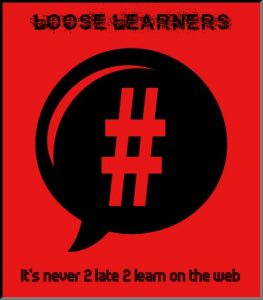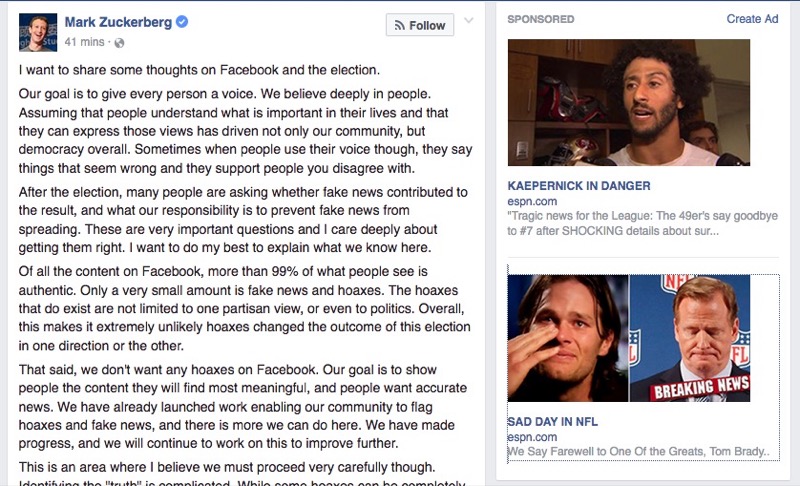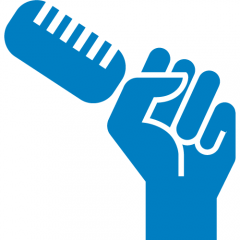Download (right-click): Loose Learners Episode 2
Loose Learners Ep 2 John Johnston & Mariana Funes living and learning on the web.
 On the first Wednesday of April we broadcasted our second episode of ‘Loose Learners’. John Johnston is a primary school teacher in Scotland and Mariana Funes is a Psychologist teaching in higher education and we explore issues that we find interesting and that we feel affect those of us using the web for educational purposes in some way.
On the first Wednesday of April we broadcasted our second episode of ‘Loose Learners’. John Johnston is a primary school teacher in Scotland and Mariana Funes is a Psychologist teaching in higher education and we explore issues that we find interesting and that we feel affect those of us using the web for educational purposes in some way.
We run the live show the first Wednesday of each month. The next show is planned for May 3rd 2017.
This episodes exposes the ‘Onion Caramelisation Conspiracy’. We denounced ‘the false five-to-10 minute standard’ for caramelising onions that is being disseminated by Google. Caramelising onions does in fact take 40 minutes according to some source. Yet, It is clear the issue is far from settled as some professional chefs vehemently argue for the feasibility of the 10 minute standard. We used this fun news item to explore the more serious issue how to identify reliable information on Google and the inherent limitations of algorithmic search.
We spoke about how tough it is to get our students to take time over searching.
We moved on to look at the work of Mike Caulfield on digital literacies. Mike is also writing an open book on Web Literacy as he prefers to label his work. Checking claims online is a laborious process and Jon Udell shows this well in a 10 minute screencast which shows him attempting to validate the claim of Trump’s drug use which was in the news recently. The video serves as a great introduction for the Web Literacy tools that Mike is developing in the DIGIPO (Digital Polarisation Initiative) project using Hypothes.is for annotation.
In this episode we also discussed 3 key strategies Mike suggests and which we felt could be useful for our students:
- Check for previous fact-checking work
- Go upstream to the source
- Read laterally
We touched on a useful Checkology Question from the News Literacy Project which Mike highlights as important and uses in his own work:
- Gauge your emotional reaction: Is it strong? Are you angry? Are you intensely hoping that the information turns out to be true? False?
And the ironic link of the day was related to this image:

From the article titled ‘That’s not fake egg on Zuck’s face’. The article starts: “What you see above are fake ads next to post about fake news by Facebook’s Head Face. Kinda pegs the irony meter.”
We quoted Jon Udell to end this section:
“Fact checking is hard work. A single investigation can require students to find, organize, and present evidence found online in dozens of HTML or PDF pages. The Digipo toolkit provides a set of helpers that enable students to power through the grunt work of assembling evidence so they can focus on producing well-written investigations.”
We moved on to explore a potential limitation of our focus on individual development in the shape of the psychological finding that the situation we are in determines our behaviour irrespective of what we bring to the situation in terms of individual dispositions. We discussed a post one of us wrote titled ‘Do situational factors trump ethics in open education?’ as a way into what it may mean to redesign the platforms we use online so that they encourage the kind of behaviours that support dialogue rather than polarising discussion. Should the platforms we use be studied and re-designed? Is our web literacy focus not just an excuse to put the burden of responsibility on the individual rather than challenge corporations that encourage unethical action? Are we wise investing so much time in skill development just as we create social media situations that do not support the sharing of accurate information?
We concluded this section with a quote from Edwards on ‘the inscrutability of knowledge infrastructures’.
“The nature, scale and range of digital technologies have seen resurgent interest in the possibilities of openness in education. However, these technologies work on the basis of ontologies, code, algorithms and standards to build knowledge infrastructures that are not always open or opening. […] [The] work of the knowledge infrastructures of open education results in an inherent inscrutability within its practices, which is elusive in terms of significance, processes and effects.”
Put simply we wondered if we are spending time teaching our students how to do something that the situation will not encourage them to do or worse will actively discourage them to do due to…well, money.
We hope you enjoy our loose connections for April. See you all in May!
NB Although my name is associated with this post Mariana did the hard work of putting together this text.

